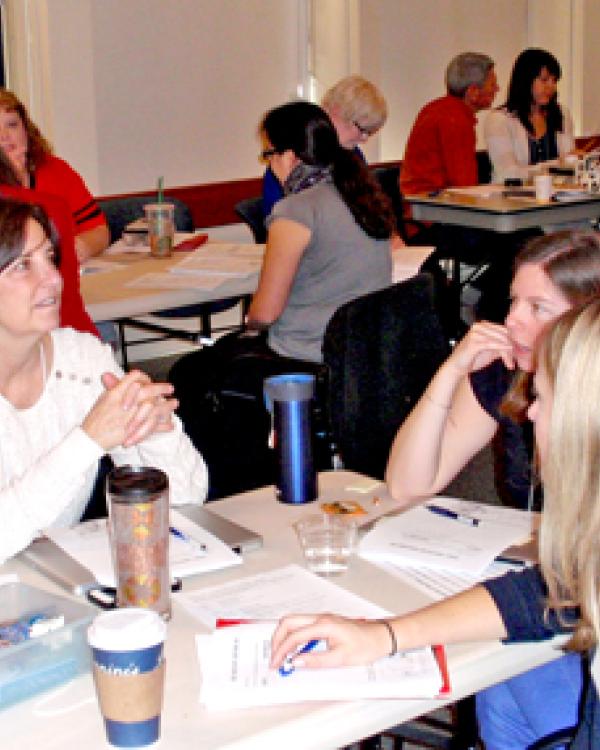
This winter quarter 45 Santa Barbara and Ventura County teachers came to UC Santa Barbara campus for a reunion day of the Tri-Projects: The South Coast Writing Project (SCWriP), UCSB Mathematics Project, and The South Coast Science Project (SCSP). This professional development event was meant to strengthen the ties amongst teachers of different disciplines who often don’t have the time or opportunity to connect during their busy school days.
After a greeting from Dr. Betsy Brenner, Senior Associate Dean of UCSB’s Gevirtz School, the teachers took part in an integrated science lesson aligned with Common Core language arts and math, and the Next Generation Science Standards (NGSS). To do so, the teachers were asked to design and build Rube Goldberg machines as a way to learn about energy transfer and transformations. Next, facilitators suggested poetry as a means to help teachers focus on the IMPORTANT THING about each of the types of energy they were assigned. Finally they were asked to use math to support their arguments about whose machine was best by measuring quantifiable aspects of their designs.
Asked to be students themselves for the day, the teachers reported (in event evaluations) that they developed “new ideas for project-based learning” and “loved the collaborative efforts of learning and applying engineering/science concepts to writing and discussing mathematics.”
A teacher from the Hope District who took part in the professional development day and then had her sixth graders work on similar project relates: “A dad who is a Senior Development Engineer and Manager in the Chemistry Department at UCSB was taking photos of our Science Lab when my sixth graders were working on their Rube Goldberg machines. He told me he was very impressed with the project and said it was exactly what students should be doing at this age to prepare them for learning at the university level. He said that presenting them with a problem and letting them solve it as a team was helping them develop critical thinking skills and good training for the projects that are waiting for them in later years.”
The Tri-Projects are all housed in the Gevirtz Graduate School of Education, allowing for an increased level of collaboration. As is required by new Common Core standards in effect in California, that makes it easier to integrate applying English and Language Arts skills to Math and Science. “The goal is that over time teachers will learn that the practices support each other,” says Lilly Garcia, Director of STEM Outreach for the Gevirtz School. “The Tri-Projects have created a space for us to learn from each other, impacting teachers and school districts in the process.”